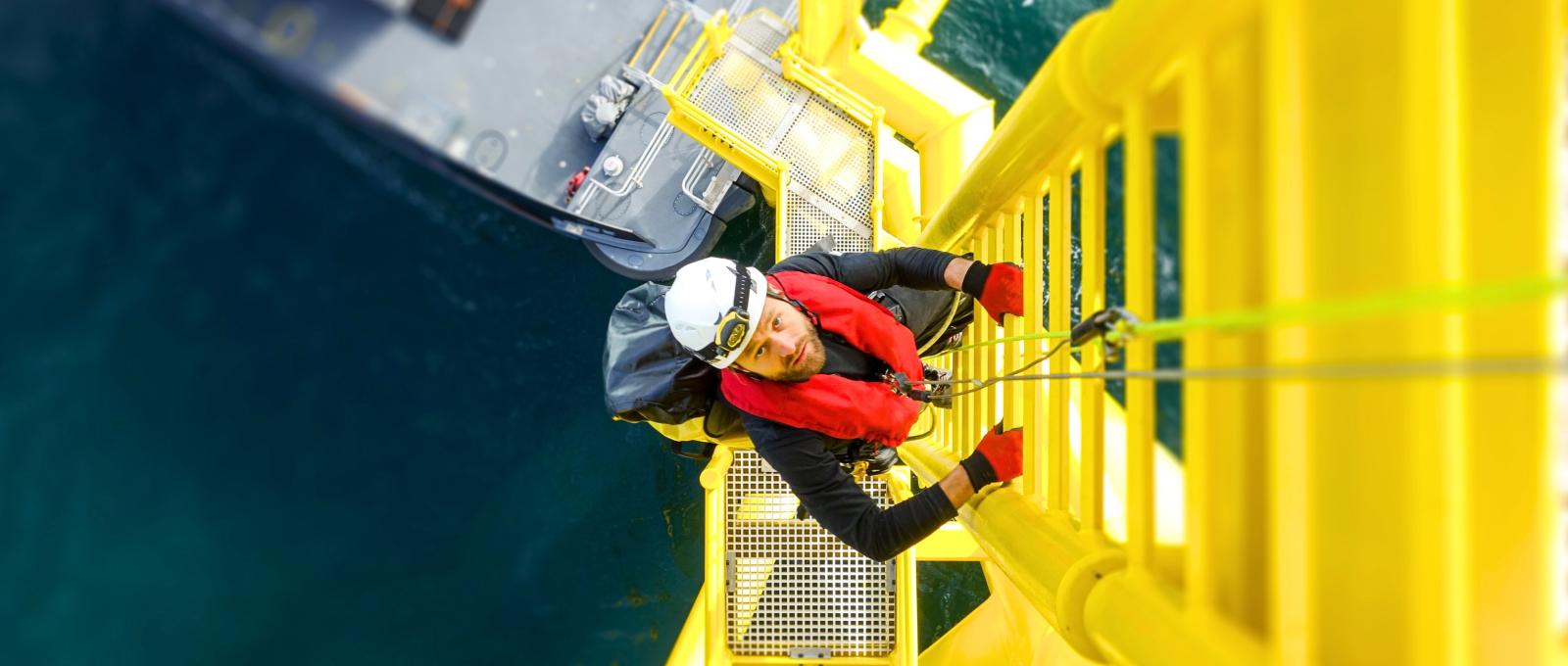
5G connected offshore & onshore workers with GroupTalk
Mar 20, 2024
Download Ericsson connected oil and gas report here Try GroupTalk free of charge for 14 days hereThe oil and gas industry is embracing technology for efficiency and safety
The Ericsson Connected oil and gas report features business-critical communication in the oil and gas industry. This article is based on the Ericsson report. Connected workers and autonomous vehicles as paramount use cases to ensure workers’ safety, efficiency, and productivity through 5G, data integration, and robotics. Backed by private cellular networks and industry leading solutions.
The oil and gas sector is crucial for the global economy, but faces challenges like internal competition, aging infrastructure, and skill shortages, as well as external issues like geopolitics and the environment. Technology innovation, starting with automation in the 1970s and now embracing Industry 4.0 technologies, is key to its growth. With Industry 4.0 (the integration of intelligent digital technologies into manufacturing and industrial processes), including AI, IoT, and 5G, the industry is moving towards better efficiency, cost reduction, and risk mitigation through real-time data analysis and autonomous operations. Despite challenges, the industry is vital, providing 57% of the world's energy in 2020 and employing millions. The oil and gas sector has led the charge in digital transformation, enhancing safety and efficiency by automating operations in ATEX / hazardous environments. This shift has optimized production processes, minimized downtime, and bolstered safety measures.
Why private 5G and not cables and Wi-Fi?
Private 5G is becoming foundational for connectivity in the oil and gas industry's transition to Industry 4.0. Traditionally, operations relied on cables and WiFi, which are challenging in remote and harsh environments like offshore rigs. Cabling is costly, inflexible, and inadequate for mobile applications, often needing WiFi or cellular networks as supplements. However, WiFi encounters difficulties in such environments due to signal attenuation, reflection, and interference from metallic surfaces, leading to coverage limitations and connectivity issues.
Private 5G is the solution, private 5G networks offer tailored solutions for the unique demands of oil and gas operations. They address challenges more effectively than WiFi or cables by providing enhanced reliability, superior coverage, industrial-grade networks, greater flexibility, and heightened security measures.
Ericsson in partnership with GroupTalk
Safety, cost control, and employee interaction are crucial in the oil and gas industry, making business-critical communication paramount. Offshore installations often rely on two way radio solutions for employee communication. Connecting these systems via critical communication solutions with land-based resources enhances efficiency and interaction with external support. With 5G technology, business-critical communication gains additional capabilities like high-bandwidth private networks supporting voice, video, and messaging. This enables seamless communication across various devices, enhancing interoperability and reducing infrastructure costs. GroupTalk, in partnership with Ericsson, offers business-critical communication solutions.
Efficient group communication offshore and onshore with 5G and GroupTalk PTT
Our solution offers several benefits for the oil and gas industry, including onshore support for offshore installations, reduced travel costs and carbon footprint and central support from specialists. Combining two way radio and GroupTalk extends the business critical communication on the rig to PC and mobile users at a distance, facilitating ad-hoc access to specialists during incidents. As new networks and connectivity options such as private LTE / 5G networks are constantly improving, Increased use of modern smartphones and tablets in combination with such new services is an important aspect of digital worker experience. We at GroupTalk offer such experience with its real time collaboration suite that improves efficiency, reduces costs, and facilitates better group communication between offshore personnel and onshore support.
GroupTalk customers have told us that moving from traditional two way radios to GroupTalk has resulted in a service with much better coverage, higher voice quality, more features for efficient group collaboration (location services, status, messaging, queues, etc.) at an overall lower cost. Switching from traditional two way radios to smartphones also fits with their mobile first digital transformation strategy.
Our solution
We at GroupTalk provide a market leading Push to Talk (PTT) service that enables group communication for realtime collaboration. The GroupTalk service is managed via a web admin. Users connect to the service with Android and iOS devices leveraging private and public 4G / 5G networks as well as WiFi. ATEX certified smartphone devices and
PTT accessories are available to accommo-date the requirements of working in hazardous environments. Traditional two way radio systems can be bridged to GroupTalk allowing seamless communication between the two way radios, smartphones, and PCs. The GroupTalk PC Dispatch is used by operations centers to monitor multiple PTT groups and private calls simultaneously, as well as manage queues and panic alarms and view user locations in realtime.
Our solution also includes ATEX (ATmosphere EXplosive) smartphones and PTT accessories. By combining ATEX phones and accessories from Ecom Pepperl-Fuchs or iSafe, the digital worker in hazardous areas can achieve efficient workflows. GroupTalk can also be used in combination with ATEX-certified earmuffs and iPhone in ATEX-certified cases.
By cooperating with Ericsson on private LTE / 5G networks and world leading vendors of ATEX-certified smartphones and accessories, like Ecom Pepperl+Fuchs or iSafe. We can help these businesses benefit from a modern solution in a digitized world, without compromising on security.